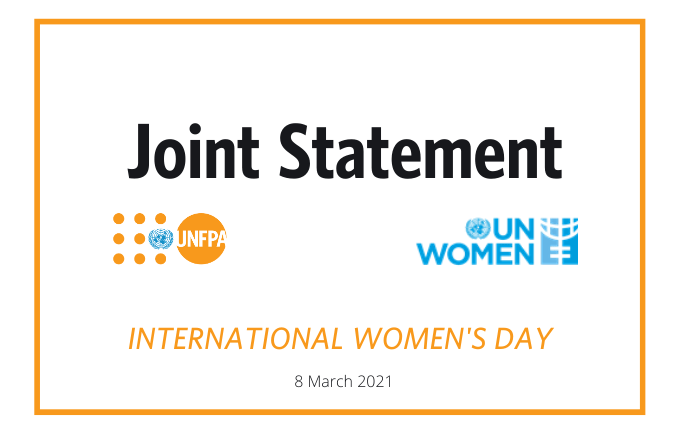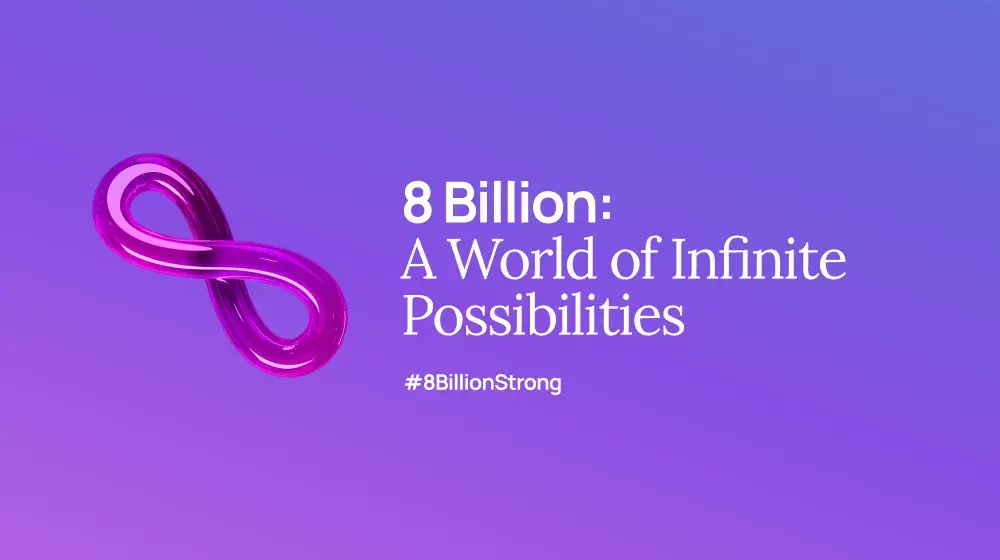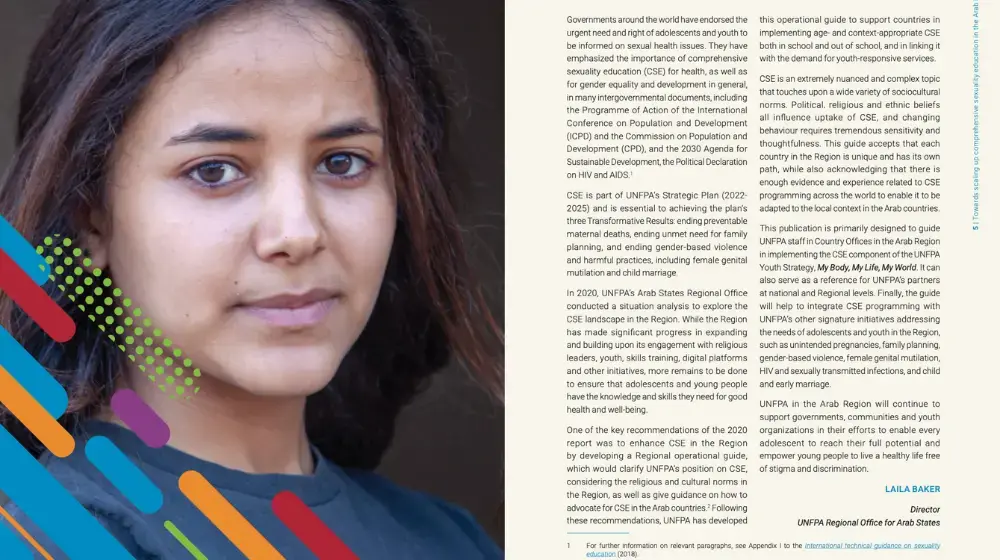UN Women Arab States Regional Director, Ms. Susanne Mikhail Eldhagen
UNFPA ASRO Regional Director, Dr. Luay Shabaneh
This year’s International Women’s Day theme, “Women In leadership: Achieving an equal future in a COVID-19 world”, focuses on the enormous contribution of women in leadership at all levels and across all sectors. As we tackle the enormous challenges of addressing the health and socioeconomic impact of COVID-19, now more than ever it is crucial that women are front and center of local, national, regional and global recovery plans.
UNFPA and UN Women acknowledge the heroic role female healthcare workers have played in fighting the COVID-19 pandemic. Women make up nearly 80 per cent of the regional healthcare workforce. They have also increasingly assumed greater responsibilities at home. At the same time, tragically, the rate of violence against women increased during the lockdown as many women were trapped with their abusers and isolated from essential services. Midwives in rural areas of Yemen, Sudan and Somalia spare no effort to save lives through assisting pregnant women suffering from lack of access to reproductive health services. With all these achievements, women continue to suffer the inequalities and only represent 25% of the senior roles.
There are countless compelling examples of women's successes in leading their societies in facing crises. Dr. Heba Mostafa of Egypt, working at Johns Hopkins University has contributed to the development of the in-house corona virus-screening test that may soon allow the health systems to test as many as 1000 people per day. Every day across the region, millions of women are keeping their families and communities safe, contributing to the economy, leading by the example that they set for progress towards a more equal world as we build back better.
In order to achieve gender equality and women’s empowerment for all and enable women and girls to become great leaders, we must ensure that they are empowered to make informed decisions about their bodies, health, and family planning. We must build societies where girls and women have access to quality education at all levels and have legal and practical opportunities to choose their professions.
Even before COVID-19, women and girls did not have equal opportunities to reach their full potential in terms of leadership. This hampers businesses themselves to reach their full potential in terms of growth and revenues - simply because the unequal playing field that did not promote a leadership based on merit. And in extension, this negatively affects the very development of communities and entire societies. Therefore, we need an equal playing field where qualifications, merits and capacities determine leadership for the development of our businesses, organizations, societies and nations. Particularly in these difficult times, gender equality is critical because women´s contribution to leadership is simply essential to accelerate the COVID-19 recovery. We can surely build back better and stronger societies - together.
UN Women and UNFPA stand ready to work with all stakeholders to implement international and national frameworks for gender equality to eradicate gender-based violence, including harmful practices, such as child marriage and female genital mutilation, to ensure full access to sexual and reproductive services and respond to the needs of the most marginalized and vulnerable – including adolescent girls, people living with disabilities, indigenous peoples, migrants, women refugees, female heads of households, those living in extreme poverty, and other groups at risk of being left behind.
These legal and policy reforms should also include the expansion of human and institutional capital, enhanced gender-sensitive data collection, and initiatives that improve women's health, including sexual and reproductive health, and expand their capacity to fully participate in public life.
In addition, UNFPA and UN Women work with our partners in government, private sector, civil society and academia to advance the protection of women’s fundamental rights and sustainable and equitable development for all. We call on governments and the private sector to promote women’s leadership by creating an enabling environment to show leadership talent and abilities and to make an effort to include women in senior leadership positions, especially at the political level.
###
For more information, please contact:
Samir Aldarabi; UNFPA Regional Communication Advisor, Uat Arab States Regional Office
Phone: +201068484879, Email:aldarabi@unfpa.org
Diego De La Rosa, Regional Communications Specialist, UN Women Regional Office for the Arab states
E-mail: diego.delarosa@unwomen.org





